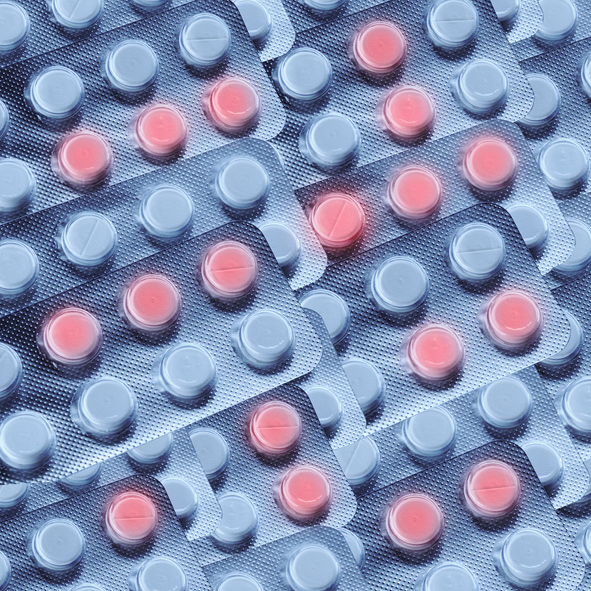Does Birth Control Cause Weight Gain?
Women use birth control at menopause to help regulate heavy periods, but could it be the reason for your weight gain?

Regular readers will know I am very appreciative of the excellent work of Lara Briden, the New Zealand naturopathic doctor and bestselling author on Womens hormonal health.
I know many women are using hormonal birth control at peri/menopause not just for contraception but to help control heavy bleeding but may not be aware of the side effects.
Whether you are on the Pill or hormonal coils such as Mirena these do not contain progesterone, but synthetic progestins. These mimic the action of the natural hormone but are not at all the same thing, and do have their own side effects. Lara Briden explains below what these can be.
Does hormonal birth control impair metabolic health or cause weight gain?
First of all, most types of hormonal birth control suppress ovulation and, therefore, switch off estradiol and progesterone. That means most types of hormonal birth control switch off the metabolism-enhancing benefits of those natural hormones.
In that sense, any type of hormonal birth control could potentially impair metabolic health.
Birth control switches off hormones
With most types of hormonal birth control, you’ll make very little (or no) estradiol and almost always no progesterone. And, of course, there’s no estradiol or progesterone in birth control. (A few combined contraceptive methods use body-identical estradiol, but none use body-identical progesterone.)
Specifically:
On a combined estrogen-progestin method like the pill, patch, or ring, you’ll make almost no estradiol or progesterone. In their place, you’ll have contraceptive drugs like ethinylestradiol (synthetic estrogen) plus one of several progestins. See below for the metabolic effects of ethinylestradiol and different progestins.
On the Depo-ProveraⓇ injection, you’ll also make no estradiol and progesterone but instead have the drug medroxyprogesterone.
On a progestin-only method like an implant or progestin-only pill (sometimes called a “progesterone-only” pill despite not being progesterone), you’ll make some estradiol but no progesterone. Instead of progesterone, you’ll have a progestin like norethindrone (norethisterone), levonorgestrel, etonogestrel, or drospirenone. Read the label to see which progestin you’re taking.
Finally, on a hormonal IUD (which delivers the progestin levonorgestrel directly into the uterus), you may still ovulate and make your own estradiol and progesterone. You will also have a low level of levonorgestrel throughout your body, including in your brain.
How do different contraceptive drugs affect metabolic health?
Ethinylestradiol can cause fluid retention and possibly reduce muscle. It may also impair insulin sensitivity. That’s in contrast to estradiol (natural estrogen), which improves insulin sensitivity.
The metabolic effects of progestins vary with the individual progestin and how androgenic or testosterone-like it is.
Non-androgenic or anti-androgenic progestins like drospirenone and cyproterone acetate generally improve insulin sensitivity and reduce visceral fat, but coming off them can cause rebound insulin resistance and weight gain.
Androgenic (testosterone-like) progestins like levonorgestrel, norethindrone (norethisterone), etonogestrel, desogestrel, norgestrel, norgestimate, and medroxyprogesterone impair insulin sensitivity and potentially increase visceral fat (also called abdominal or android fat).
That’s because, in women, androgen or testosterone excess can cause or drive insulin resistance.
Medroxyprogesterone (from the DepoProvera injection) is interesting in that it’s only slightly androgenic at the androgen receptor, but in women, that’s enough to cause androgen side effects like acne, facial hair, and weight gain. In men, on the other hand, a high dose of medroxyprogesterone can be used to shut down testicular function and act as a strong anti-androgen.
The other mechanism by which Depo-ProveraⓇ can cause weight gain is by interacting with cortisol receptors, thereby causing cortisol-induced insulin resistance, which, according to research, may (in some women) result in “unstoppable weight gain,” or weight gain that doesn’t plateau or level out.
Finally, estrogen (even synthetic estrogen) is anti-androgen, so all combined estrogen birth control methods have a somewhat anti-androgen effect, even if they contain an androgenic progestin. Androgenic progestins are most likely to promote weight gain (and other androgen side effects) when they’re taken on their own in progestin-only methods like implants, IUDs, or progestin-only pills.
Helpful information:
It is always helpful to know exactly what you are taking, so knowing the difference between synthetic derivatives and natural hormones is important. If you would like to know more the following article will help.



















